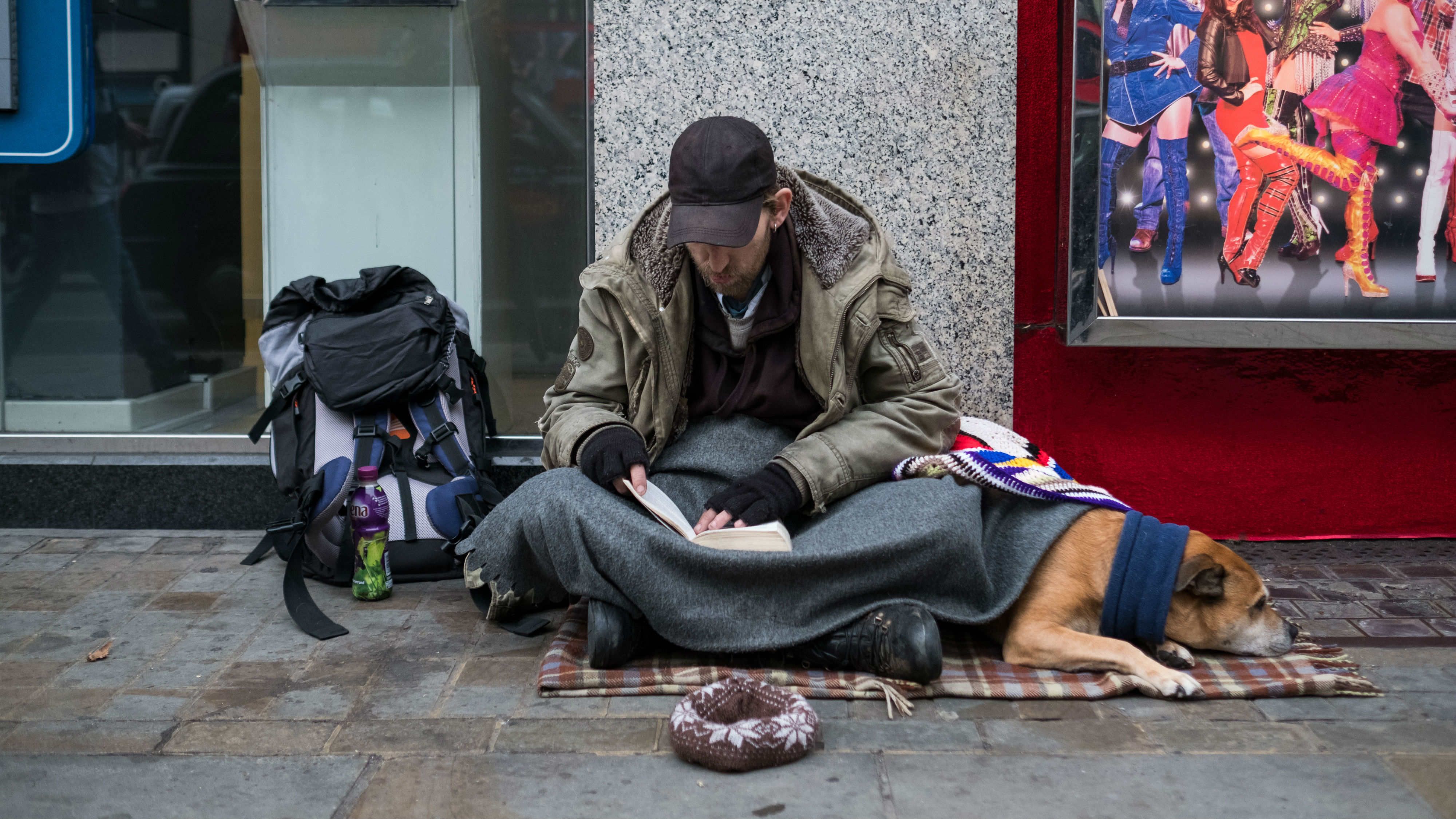Why a growing number of homeless people are being fined and jailed
Investigation finds more than 50 local authorities have PSPOs banning begging and loitering

A free daily email with the biggest news stories of the day – and the best features from TheWeek.com
You are now subscribed
Your newsletter sign-up was successful
An increasing number of homeless people are being fined and even sentenced to prison for begging and rough sleeping, according to a new report.
Despite updated Home Office guidance issued at the start of the year that said councils should not to target rough sleepers, an investigation by The Guardian found that more than 50 local authorities had public space protection orders (PSPOs) in place. Under the PSPOs, homeless people “are banned from town centres, fined hundreds of pounds and jailed if caught repeatedly asking for money in some cases”, says the newspaper.
The report says that local authorities in England and Wales have handed out hundreds of fixed-penalty notices and pursued criminal convictions for “begging”, “persistent and aggressive begging” and “loitering”, after being given strengthened powers to combat anti-social behaviour in 2014 by then-home secretary Theresa May.
The Week
Escape your echo chamber. Get the facts behind the news, plus analysis from multiple perspectives.

Sign up for The Week's Free Newsletters
From our morning news briefing to a weekly Good News Newsletter, get the best of The Week delivered directly to your inbox.
From our morning news briefing to a weekly Good News Newsletter, get the best of The Week delivered directly to your inbox.
Rosie Brighouse, a lawyer for human rights advocacy group Liberty, said: “We warned from the start that PSPOs were far too broad and ripe for misuse by over-zealous councils wanting to sweep inconveniences off their streets. Now we see dozens of local authorities using them to target marginalised groups and fine people for being poor.”
Such cases reportedly include a man jailed for four months for breaching a criminal behaviour order (CBO) in Gloucester for begging. According to The Guardian, the judge in the case admitted: “I will be sending a man to prison for asking for food when he was hungry.”
A BuzzFeed report in December said that “outdated Victorian laws are also still heavily relied upon, with 1,461 people prosecuted for begging last year using the 1824 Vagrancy Act”.
Although this law “does not typically result in a prison sentence, unless in rare prosecutions of unpaid fines, a breach of a CBO can result in a sentence of up to five years in prison”, the news website said.
A free daily email with the biggest news stories of the day – and the best features from TheWeek.com
Among the most officious councils was Kettering Borough Council. The Northamptonshire town hailed what it believed to be “the most criminal behaviours orders issued at once on the back of convictions” for begging, after taking ten people to court for breaching PSPOs in May 2017.
“The PSPO is used to address antisocial behaviours in the town centre. During the course of their work, if our staff identify individuals in need of support, they refer people to the appropriate agencies for help. The council is very proactive in this regard,” it said in a statement.
Josie Appleton, director of the Manifesto Club campaign against hyper-regulation of everyday life, told The Guardian: “It’s a travesty that people who most need our help are being treated like they are scum... how do you treat the poor? The fact they are being seen as a messy thing is grotesque inhumanity and lots of places with these orders in place have faced huge public outcry to the orders.”
She added: “It’s this kind of very harsh officious mentality... it’s not to do with representing people but airbrushing things.”
May introduced PSPOs in 2014 to restrict how specific areas could be used. In December 2017, her successor, Amber Rudd, told councils not to misuse anti-social behaviour laws by targeting homeless people.
A Home Office spokesperson said: “We are clear that PSPOs should be used proportionately to tackle antisocial behaviour, and not to target specific groups or the most vulnerable in our communities.
“It is for local agencies to determine whether their use of the powers is appropriate, and that they are meeting the legal tests set out in the legislation. The Government is committed to tackling and reducing homelessness and to offer support to the most vulnerable in our society.”
-
 How the FCC’s ‘equal time’ rule works
How the FCC’s ‘equal time’ rule worksIn the Spotlight The law is at the heart of the Colbert-CBS conflict
-
 What is the endgame in the DHS shutdown?
What is the endgame in the DHS shutdown?Today’s Big Question Democrats want to rein in ICE’s immigration crackdown
-
 ‘Poor time management isn’t just an inconvenience’
‘Poor time management isn’t just an inconvenience’Instant Opinion Opinion, comment and editorials of the day
-
 Daniel Penny: subway killing of Jordan Neely opens new front in culture war
Daniel Penny: subway killing of Jordan Neely opens new front in culture warfeature 24-year-old former marine has been charged with second-degree manslaughter prompting a furious outcry from conservatives
-
 ‘France looks more ungovernable than ever’
‘France looks more ungovernable than ever’Instant Opinion Your digest of analysis from the British and international press
-
 Home Office worker accused of spiking mistress’s drink with abortion drug
Home Office worker accused of spiking mistress’s drink with abortion drugSpeed Read Darren Burke had failed to convince his girlfriend to terminate pregnancy
-
 In hock to Moscow: exploring Germany’s woeful energy policy
In hock to Moscow: exploring Germany’s woeful energy policySpeed Read Don’t expect Berlin to wean itself off Russian gas any time soon
-
 Were Covid restrictions dropped too soon?
Were Covid restrictions dropped too soon?Speed Read ‘Living with Covid’ is already proving problematic – just look at the travel chaos this week
-
 Inclusive Britain: a new strategy for tackling racism in the UK
Inclusive Britain: a new strategy for tackling racism in the UKSpeed Read Government has revealed action plan setting out 74 steps that ministers will take
-
 Sandy Hook families vs. Remington: a small victory over the gunmakers
Sandy Hook families vs. Remington: a small victory over the gunmakersSpeed Read Last week the families settled a lawsuit for $73m against the manufacturer
-
 Farmers vs. walkers: the battle over ‘Britain’s green and pleasant land’
Farmers vs. walkers: the battle over ‘Britain’s green and pleasant land’Speed Read Updated Countryside Code tells farmers: ‘be nice, say hello, share the space’